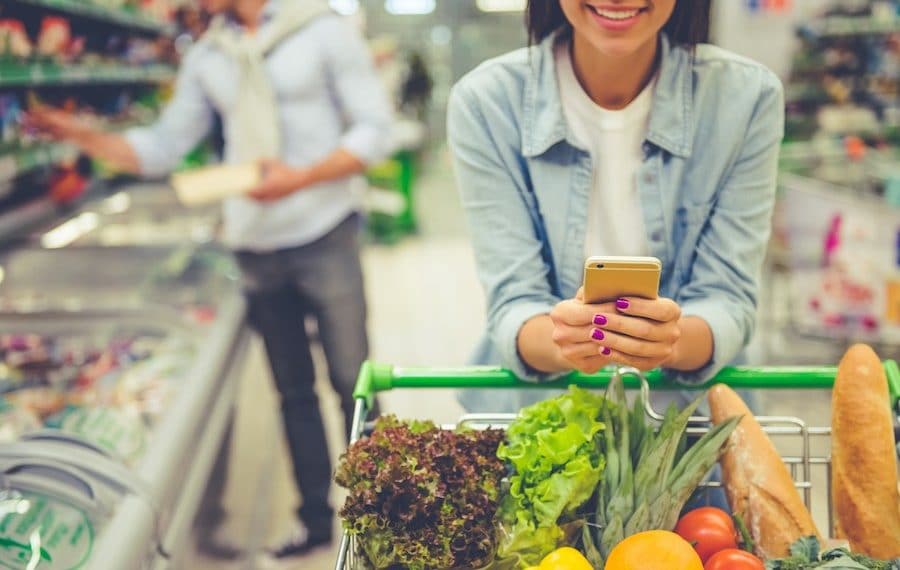Being a vegan, ensuring that you consume every essential nutrient is extremely important. While many stress over omega and protein intakes, one nutrient that is equally important for vegans and non-vegans alike is vitamin D.
But what to do if you’re a vegan?
You must be wondering how you can consume your daily dose of this nutrient as the source of vitamin D3 is usually non-vegan.
Well, let go of your worries since there exist several vegan vitamin D sources and supplements that can work wonders in your life.

But before we know about them, let us first understand what is vitamin D for vegans!
What is Vegan Vitamin D?
Vitamin D is an indispensable element that is needed for the proper functioning of the body. As such, there are two types of this nutrient- D2 and D3. While D2 sources are always vegan, D3 sources are only present in animal-based food items, which are not suitable for vegans.
As a result, vitamin D for vegans is produced, especially focusing on vegan vitamin D3 that comes from algae and does not involve any animal-based elements in making.
Vegan vitamin D acts and performs functions similar to regular vitamin D and can be consumed from different supplements available in the market. There are also other sources, such as vitamin D fruits that can be eaten along with other vegan sources to avoid the deficiency of this nutrient in the body.
Why is Vitamin D so important?
Vitamin D foods for vegetarians, vegans, and non-vegetarians are extremely necessary since this nutrient performs a range of functions in the body.
Let’s look at them one by one:-
1. Healthy Bones
One of the main benefits of consuming vitamin D foods is that it leads to intestinal calcium absorption and assists in maintaining required blood levels of phosphorus and calcium in the body. This leads to healthier bones. Therefore, its intake must be monitored as lack of this nutrient can cause rickets in children, and osteomalacia or softening of bones along with osteoporosis in the long run in adults.
2. Better Immunity
Another benefit of vegan vitamin D is that it promotes immunity and prevents the risk of developing autoimmune diseases and respiratory issues. Good immunity helps the body fight off illnesses and keep infections at bay. In all this, vitamin D plays a crucial role.
3. Support Cell Growth
Vitamin D is extremely essential for the body, hence, many tissues possess receptors that respond and send signals which help vitamin D to carry out necessary reactions. Apart from these, this nutrient even helps in cellular growth and differentiation and in the long run formulates the response of the body to inflammation.
4. Functions as An Energy Booster
Vegan vitamin D sources help the body get the desired levels of this nutrient, which further plays a role in the mitochondrial reaction. This helps in powering the different cells of the body. In other words, vitamin D boosts energy levels, reduces fatigue, and relieves sore muscles in the body.
5. Promotes Good Sleep
Several studies point out that plant-based vitamin D3 plays an important role in sleep regulation. The nutrient is said to be extremely crucial for good sleep, relaxation of the body, and fighting off other medical problems that lead to sleep disruption in people.
Symptoms of Vitamin D deficiency
While vitamin D insufficiency can occur in anybody, some people have a higher risk of Vitamin D deficiency. These include post-menopausal women, people who have been on long-term steroids, and those with chronic kidney and parathyroid diseases amongst others.
But in everyday life, how do we know the symptoms of a vitamin D-deficient body?
Well, let’s look at these in a bit more detail:-
1. Fatigue and Tiredness
A common symptom related to vegan vitamin D deficiency is constant fatigue and tiredness. Although not many relate tiredness and less sleep at night to the lack of this nutrient, it is many times one of the major culprits behind the problem.
2. Bone and Back Pain
Another symptom of inadequate vitamin D is bone and back pain. This nutrient assists in making the bones stronger by helping the body absorb calcium, but an absence of it can lead to pain in the mentioned regions.
Also, it has been found that people who usually suffer from arthritis, muscle pain, and other chronic pain tend to have a low level of vitamin D, therefore, this aspect should always be kept in mind to avoid deficiency and fight off such health problems effectively.
3. Contracting Frequent Illnesses and Infections
A major role of vegan sources of vitamin D is to provide better immunity that can help in fighting against several illnesses. Since this nutrient directly interacts with those cells that address these infections, a lack of it can affect overall immunity, causing you to catch the common cold and flu more frequently.
4. Hair Fall
While one of the most common reasons for hair fall is stress, lack of certain nutrients can also be a contributing factor to hair loss. In women, this problem is related to low levels of vitamin D. In some cases the lack of vitamin D has also been linked to alopecia areata, which is a severe form of hair loss.
5. Weight Gain
Problems like obesity can have another underlying cause and that can be vitamin D deficiency apart from junk food and other unhealthy items that promote weight gain. In several studies, it has been indicated that low levels of vitamin D can lead to belly fat and overall weight gain in the body.
6. Muscle Pain and Cramps
Although the causes of muscle pain and cramps are hard to pinpoint, one of the potential causes of this issue is vegan vitamin D deficiency. In various studies, it was found that people who were suffering from chronic pain had low levels of vitamin D, which is a major symptom that helps to know the low nutrient levels in the body.
Top 9 Vegan Sources of Vitamin D
Well, to help you hit your daily quota, mentioned below are some of the vitamin D source vegan choices for you that are surely a great way to fight off diseases and lead a healthy life.
1. Mushrooms

One of the best vegan sources of vitamin D is Mushrooms. Its variants such as Maitake, Portobello, Morel, Shiitake, or Button are all known for being a good source of vitamin D.
These mushrooms possess a compound called Ergosterol, which upon exposure to UV light gets converted to vitamin D2 and hence, are loaded with vitamin D in their entirety. Interestingly, a growing mushroom in sunlight produces about 450 IU (International Unit) per 100-gram serving.
A readily available, plant-based vegan source of vitamin D, mushrooms are also filled with a multitude of health boons, which combined with vitamin D nutrients can lead to healthy impacts on the body.
2. Fortified Cereals

One of the vegan vitamin D sources that are easily available for consumption is fortified cereals. With less sugar, cereals are a good addition to one’s diet since they are also loaded with different essential minerals. With these micronutrient-induced cereals, you can meet your daily vitamin D requirements while also ensuring a healthy life away from illnesses.
Although vitamin D found in different brands of cereal has varying amounts of this nutrient, they are more or less between 8 to 100 IU per serving. Always check their labels to learn more about the specifications.
Suggested Read => List of Top Multivitamin Brands
3. Fortified Orange Juice

One of the healthiest items, fortified Orange Juice is yet another vegan vitamin D source that you can opt for without a second thought. A nutritious option, it has many health benefits that can work wonders in your everyday life. However, not all orange juices are fortified; hence, look at the product’s packaging before buying one.
Ideally, fortified orange juice will contain approximately 100 IU of vitamin D per serving. Another benefit of this fortified drink is that it contains calcium along with vitamin D which further adds to its overall benefits.
4. Fortified Rice Milk

Another vitamin D food that offers about 12% of the daily value is Fortified Rice Milk. Made commercially by pressing the rice with a grinding mill, this option is the least allergenic compared to other plant-based milk alternatives. Fortified rice milk contains about 2.4 mcg (96 IU) of vitamin D per serving. You can also get hold of some brands that have their milk fortified with other essential nutrients such as vitamin B12 and vitamin A.
However, those who are diabetic must ensure that they do not consume rice products much since they are high in carbohydrates. They can also be risky if consumed by infants and children due to their inorganic arsenic levels, hence, discretion is recommended.
5. Fortified Almond Milk

Fortified Almond milk is another vitamin D food for vegans that can suffice the purpose easily. Fortified almond milk contains about 2.4 mcg (96 IU) of this nutrient per serving. There also exist several brands of almond milk that are fortified with calcium, which combined with vitamin D further adds to the benefits of the milk.
However, it is always advised to check the labels to ensure that they do carry vitamin D in them, as many of the brands present in the market arena that sell the milk’s raw or regular versions do not contain this essential nutrient.
6. Fortified Tofu

A vegan vitamin D source that you can find easily is Fortified Tofu. A healthy item, it is also loaded with other vitamins and minerals that further add to its efficacy and benefits. The best part about tofu is that it is extremely versatile and can be used in a variety of dishes without much ado. As such, you won’t have to worry about how you can include this item in your everyday diet.
You can consume Tofu’s vitamin D by preparing the exotic Tofu Thai Green Curry or can lay your hands on making other luscious options at home. Fortified tofu can help you meet your daily need for this essential nutrient as it contains 100 IU of vitamin D per 3.5 Oz (ounce) portion.
7. Fortified Soy Milk

Fortified Soy milk is one of the best and most beneficial vitamin D foods for vegans. A plant-based option, it is a healthy choice that can be easily mingled with different dishes. In other words, they can be consumed in a variety of ways without any hassle.
As such, one cup of fortified soy milk contains up to 116 IU of vitamin D. However, it is necessary to check the label to ensure that the brand does contain this nutrient. Those brands that are not fortified tend to have little vitamin D in them.
8. Vitamin D Supplements

An easy way to get the essential nutrients is to consume a vegan vitamin D supplement. There are two types of supplements available in the market realm – vitamin D2 and vitamin D3. While vitamin D2 is always vegan, some D3 supplements are derived from animals. Therefore, it is always recommended to check the labels and specifically check for vegan vitamin D3 options.
To enhance the absorption of these supplements, it is advised to take them along with a meal. Try to choose items that tend to be high in fats, such as nuts, seeds, and avocados, since they help in increasing the absorption of vitamin D quickly and efficiently.
9. Sunshine

One of the most important vegan vitamin D sources, which we invariably overlook but are present in abundance is Sunshine. Though not a food, it is still a great source of vitamin D for vegans out there. When our skin gets exposed to Ultraviolet B Rays, it absorbs these rays and along with other precursors makes vitamin D3.
However, too much sunlight should be avoided as it might lead to sunstroke, exhaustion, and even skin cancer. Hence, moderation is required at all times.
As such, after going through the vitamin D vegetable list along with other prominent sources, we are sure that you will not fall short of the essential vegan sources of vitamin D and b12 nutrients in any form, and will be able to guard yourself against illnesses and lead a healthy life.
How Much Vitamin D is Required?
Once you know why vitamin D is so important in your everyday life, it is equally essential to know how much vitamin D is needed by the body.
Well, according to the National Institutes of Health, adults should ideally consume about 600 IUs (International Units) of vitamin D daily. However, some experts opine that this dose is less and thus, suggest a higher dose for better health.
Certain research shows that consuming 2000 IUs or 50 micrograms of vitamin D3 per day is ideal for the body. However, one should be careful in the intake of vitamin D and should make sure that they do not consume more than 4000 IUs per day without consulting a doctor.
Here is a chart to help you understand the dosage in a better way:-
Note: The amount of vitamin D that is required by you depends on your age. The recommended amount per International Unit (IU) is as follows-
| Age | Recommended Dose |
| Birth to 12 months | 400 IU |
| Children 1-13 years | 600 IU |
| Teens 14-18 years | 600 IU |
| Adults 19-70 years | 600 IU |
| Adults 71 years and older | 800 IU |
| Pregnant and breastfeeding women | 600 IU |
However, those who are at a higher risk of vitamin D deficiency should consult a doctor to know about the apt dosage.
What To Look For in a Vitamin D Supplement?
Now, when you are all filled with information pertaining to vitamin D, one thing that might be bothering you is what to look for in a vitamin D supplement while buying it and how to make sure that it is not only vegan but effective too.
Well, let’s look at what you should be considering while searching for the best vegan vitamin D supplement:-
1. Check the Labels
While choosing a vegan vitamin D supplement, make sure you check the label to ensure that it contains vegan ingredients and has no trace of animal-based elements.
2. Look for Fat Quotient
Vitamin D is known to be fat-soluble. As such, when you go to buy a vegan vitamin D supplement, look for a formula that contains a fat component as it will enhance the absorption process, thus maximizing the benefits.
3. Check the Dosage
Look for the dosage of the supplement while buying the product. If it is a stand-alone vitamin D supplement, then look for a dosage greater than 2000 IU. If it is a multi-ingredient formula, then find one that is 1,000 IU and higher doses about the needed vitamin D amounts.
4. Choose D3 over D2 Supplements
D3 is always known to be two or three times more beneficial and effective for the body compared to D2 vitamins. As such, when you think of buying any supplements, try to ensure that you buy the best D3 supplement from the market. However, always check the labels to ensure that its ingredients are vegan.
The Downside of Consuming Too Much Vitamin D
Although there are several benefits of the vegan vitamin D, there are some downsides to it as well. Some of the potential risks of consuming too much of this nutrient are as follows:-
- Can induce increased calcium levels in the blood.
- Can cause irregular heartbeat.
- Can lead to disorientation.
- Muscle weakness,
- Loss of appetite,
- Excessive urination and thirst
Hence, vitamin D should be consumed in moderation.
Vegan Vitamin D Supplement Brands
Today, various brands in the market have come up with vitamin D supplements.
But should vegans take Vitamin D supplements, since the majority of these items are made from animal sources?
Well, the good news is that some of the brands have taken this load away from the vegan community’s mind by coming up with completely plant-based supplements.
Let’s take a look at some of the most popular brands:-
1. Vegan Vitality

The company has come up with its Vegan Vitality Multivitamins & Minerals, which is a good vegan vitamin D supplement. The product is free of gluten, GMO substances, sugar, nuts, soy, eggs and wheat. It is also devoid of Cyanocobalamin (a non-vegan vitamin item) and is third-party tested, making it ideal for all vegans out there.
2. Naturelo

Naturelo Vitamin D3 is yet another option for vegans to try out. This supplement is sustainably sourced from lichen and does not contain any animal byproduct. The item is made in GMP compliant facility, thus, being a good addition to one’s diet.
3. Igennus

One of the best vegan vitamin D supplements is by Igennus Healthcare Nutrition. The company offers odorless tablets and essentially uses a plant-based algae extract. The product also prevents problems related to fat malabsorption.
4. Deva

Deva Vegan Vitamin D turns out to be an apt choice for those looking for a supplement that is fine for vegan consumption. The product is completely plant-based and vegetarian. It possesses a labeled potency. The supplement is a nutritive addition to everyday life.
Frequently Asked Questions (FAQs)
Is vitamin D vegan?
No, not all vitamin D options are vegan. This is because some of the supplements available in the market contain sheep wool, which is an animal source. Hence, while vitamin D2 is vegan, the same cannot be said about vitamin D3 sources.
What are vegan sources of vitamin D and B12?
There exist different vegan sources of vitamin D and B12 such as fortified tofu, fortified plant-based milk, and fortified cereals among others.
What is the best vegan vitamin D supplement?
Although there exist several vegan vitamin D supplements in the market, the one that invariably steals the show is Sports Research Vitamin D3+K2 Plant gel capsules.
Is there a vegan source of vitamin D?
Yes, there are different vegan vitamin D sources, such as cereals and fortified plant-based milk that are considered the best among other options.
How to increase vitamin D absorption in vegans?
To increase vitamin D absorption in vegans, it is recommended to include magnesium, zinc, and vitamin K in the diet as they speed up the absorption process, hence, reducing the chances of vitamin D deficiency.
Is vegan vitamin D effective?
Yes, vegan vitamin D is effective in its entirety and serves as a good addition for those on a plant-based diet.
Are vegans prone to vitamin D deficiency?
Vegans usually tend to have low vitamin D levels compared to vegetarians and non-vegetarians. However, with certain good additions such as mushrooms, fortified plant-based milk, and fortified tofu, the problem can be reduced.
Why do vegans avoid vitamin D3?
Vegans usually avoid Vitamin D3 as many of them are derived from an animal source such as sheep’s wool.
What plants are high in vitamin D?
Mushrooms are the only source of vitamin D that is plant-based and is found in nature. These plants possess a natural compound that, after getting exposed to sunlight, converts into vitamin D2.
Is it possible to get enough Vitamin D on a Vegan Diet?
Yes, vegans can have a sufficient amount of vitamin D daily if they include cereals, mushrooms, and fortified plant-based milk along with vitamin D supplements in their diet.
Can you take too much Vitamin D?
No, Vitamin D should be consumed in moderation as over-intake of the nutrient can cause nausea, muscle weakness, loss of appetite, excessive urination and thirst, and even dehydration.
Who needs more Vitamin D?
Vitamin D is mostly needed by elderly, expectant and breastfeeding mothers, post-menopausal women, people with chronic kidney and parathyroid diseases, and those on long-term steroids.
How much Vitamin D vegans should take?
Per the recommendations of the National Institutes of Health, any vegan must consume about 800 IU (International Unit) of vitamin D per day.
What are Vitamin D supplements made from?
Vitamin D supplements are of two types- vitamin D2 and D3 namely. While D2 is usually sourced from plants, D3 is made from animal-based sources.
Takeaway (Final Thoughts)
Vitamin D has always been a crucial nutrient required by all. For vegans, today there exist several options with which they can meet their vitamin D requirements without much difficulty. From vitamin D vegetables and fruit sources to several supplements, there are various ways to avoid vitamin D deficiency in the body.
So, what are you waiting for?
Get going and grab these natural sources to amp up your vitamin D levels in a delectable and enticing way!





